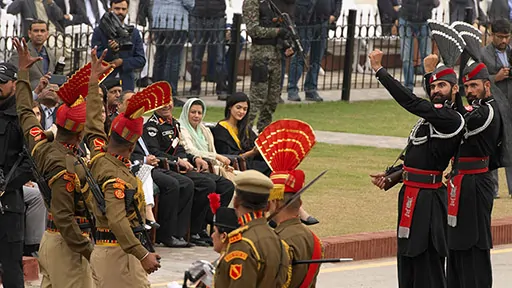Opinion Editorial Archive April, 2019: Christ, Church!

It seems that every month a mass killing is carried out, at least partially, in the name of religion. But last month was especially brutal: it happened in Afghanistan, Nigeria, twice in Mali and in Somalia. The one that received the most global media coverage happened in New Zealand.
Some cases are difficult to verify in detail — partly because of biased, sensationalized and hidden-agenda media reporting, but also because of the spread of fake news: despite efforts on social media to convince us otherwise, there was no mass killing at a church in the southern Philippines last month. That case happened in January this year. (Nor did the French Roma people drive around the streets of Paris kidnapping children for their organs. That "case" only happened on social media.)
Some media reporting also makes it difficult to know the extent of the religious factor. Certainly, in the case of New Zealand, race played a role; in the cases of Nigeria and Mali, land disputes also played a role. In the case of a similar February, 2019 incident in Kashmir, India, a land dispute was also a factor: Kashmir has been contested between India and Pakistan ever since the 1947 Partition. Yet the group that carried out the atrocity, Jaish-e-Mohammed, justifies its actions based on religion. I was in India when it happened and, the following day, I was at a military parade on the India-Pakistan border where this month's photo was taken.
That parade takes place every day at the Attari-Wagah border. But on that day (February 15, 2019), it was especially interesting as it reflected, to some extent, the reaction of people to atrocities carried out in the name of religion. While the crowd on the Pakistani side of the border was relatively subdued, the mood on the Indian side was a celebration of the retaliation (and escalation) that they were confident would follow. Around the same time India was also reacting to other atrocities — sexual abuse carried out by members of the Indian Catholic Church. I suspect many people's reaction was similar to my own: 'Christ, what is the church becoming?'
Three things were interesting to me about the reaction in New Zealand: The overwhelming national and international reaction was to embrace Islam; gun law was almost immediately reformed there in an effort to reduce, not escalate, violence; and, in their mourning, New Zealanders included hakas.
Hakas are, in their original and most basic format, a ceremonial war dance indigenous to New Zealand. They are not unlike activities witnessed at the Attari-Wagah border ceremony. But the format and meaning of hakas has evolved. Those performed last month signified unity, solidarity and resistance to the spread of hatred that played a role in the New Zealand killings.
Islamic State lost the remainder of its land last month. But the spread of its religious ideology is far from over. At the same time, indigenous communities in northeastern Cambodia had their land, taken from them ten years ago, returned to them. Had that fight taken the form of a religious war, it would have been Animism versus Buddhism. Instead the outcome was the result of years of negotiation.
The time has come for us to look to indigenous peoples' culture to help us understand our religious intolerances. There, we will find that the differences are not as great as we imagine. In its original and most basic format, religion is the belief in sentience outside of animals — in other words, Animism. But the format and meaning of religion has evolved. If the haka can evolve to become a unifying force, so too can Animism.
If you enjoyed reading this month's opinion editorial, please consider supporting independent, advertising-free journalism by buying us a coffee to help us cover the cost of hosting our web site. Please click on the link or scan the QR code. Thanks!

